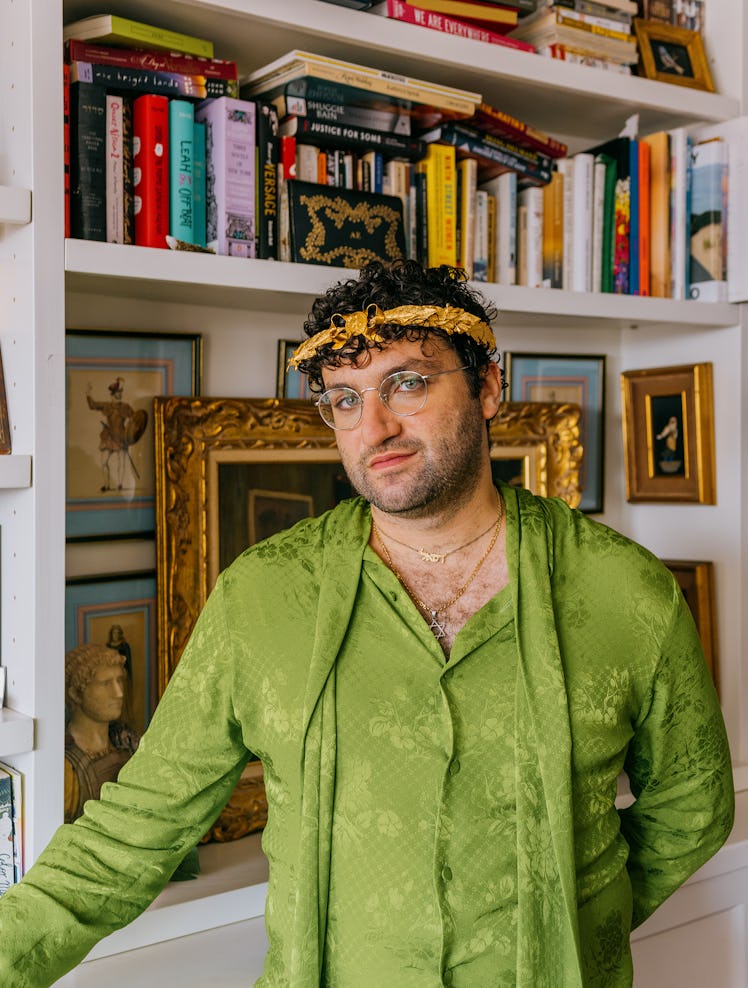Adam Eli’s Great Awakening
The LGBTQ+ activist and organizer discusses how he found his voice and began fighting for queer people all over the world.

For W’s annual The Originals portfolio, we asked creatives—pioneers in the fields of art, design, fashion, comedy, activism, and more—to share their insights on staying true to themselves. See this year’s full class of creatives here.
Prior to becoming an activist, you were living in New York, working in nightlife and real estate. Then, in June 2016, the mass shooting at Pulse, a gay nightclub in Orlando, Florida, changed the trajectory of your life. Can you speak about that?
It was a defining moment of our queer generation. I came out in 2009, in what I now understand to be a sort of twilight moment of queer progress: Obama was president; Lady Gaga was making her ascent; it was all It Gets Better and Glee! Through a mixture of ignorance and tremendous privilege, I had sort of assumed that because every year things got better for queer people, it would just continue that way. I cringe thinking about it now. But after Pulse, I was truly shocked. I couldn’t get out of bed until I joined a group called Gays Against Guns, and I quickly started doing their social media. Later that year, when Trump was elected, I think a lot of people realized that fascism-free life was not guaranteed. In the chaos of that early Trump era, my voice was able to cut through, because I had a six-month head start on using social media as a way to organize people. By using social media to provide hope and tangible ways to fight, I feel like I was really able to meet that moment.
What are some of the most significant ways your life and work have changed since then?
In 2016, I was hyper, overwhelmed, and constantly moving. Instead of feeling and processing what was happening around me, I’d post, organize, work, or seek work to keep myself distracted. Putting off feeling my feelings caught up with me, and I experienced some serious burnout. So now I’m trying to home in by throwing my support networks and what I’ve learned behind folks and causes I really believe in. When asked, I’ll step in to help with communications, social media strategy, and press. Now I make my living primarily through consulting—mostly for fashion brands, but media brands, too. I consult on messaging, how to connect more authentically with young people, where donations should be made, and the best ways to go about doing that.
What does originality mean to you?
It’s about doing something in a manner that is so you that nobody could really replicate it—even if they tried. For example, the French author Édouard Louis is not the first queer person to write about their own story in a way that unites people and pushes our movement forward. Yet he is, appropriately, hailed as an original. The same is true of other queer icons, like Janet Mock, Abby Chava Stein, Edmund White, and Leslie Feinberg, whose stories came to represent something greater than themselves. Originality is when you can remove whatever that thing is that’s preventing you from bringing your whole self into the world.
How does your Jewish heritage inform the way you operate?
I do my best to bring the Jewish principle of “Kol Yisrael arevim zeh bazeh,” or “All Jews are responsible for each other,” to the queer community. Being Jewish, being queer, or being both means that you are a part of something greater than yourself. And that means you’re never alone. This idea is fundamental to all of the work I do.
We often talk about the axiom that change is the only constant. What is not in flux for you? What is something you know for sure—at least for now?
I know that I will fight for the idea behind my first book, The New Queer Conscience—that queer people anywhere are responsible for queer people everywhere. That I’ll always fight for intersex rights and to end nonconsensual intersex surgeries. That my work will always be about trying to make the queer community a more diverse, welcoming, and kind place, especially as it pertains to the very real racism, ableism, and transphobia that exist today. That I’ll never be part of any space, movement, or moment that doesn’t welcome my transgender and gender nonconforming family for the blessing that they are.
Hair and Makeup by Sena Murahashi.